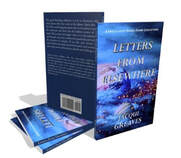An entire extra day to do whatever I want with…except…I’m on a mission.
I’ve received an expression of interest from an Australian publisher of speculative and dark fiction for a five-book series of speculative feminist novellas/short novels. The five manuscripts are to be delivered late 2024, early 2025, for quarterly release. I’m so excited, but also a bit daunted.
One of the novella’s is complete, the second almost half written and the remaining three are planned out. So, I’m on a mission to write like the wind…not the turtle of habitude!
One of the joys of writing them all before delivery, is having the ability to tweak details. I’ll be able to adjust each of the individual stories as the over-arching plot is revealed. It also gives me laser focus on writing to a schedule – something I’m not very disciplined at.
For readers, this approach will guarantee the series is complete. There’s nothing worse than committing to a series only to discover it was never completed. It will also mean the books will be published on a schedule close enough together, so the story remains fresh.
So, my focus is on writing. I’ll still do my best to write a blog at the start of every month, and in between will send out a newsletter (Click on the Contact tab to subscribe).
Wish me luck!

 RSS Feed
RSS Feed